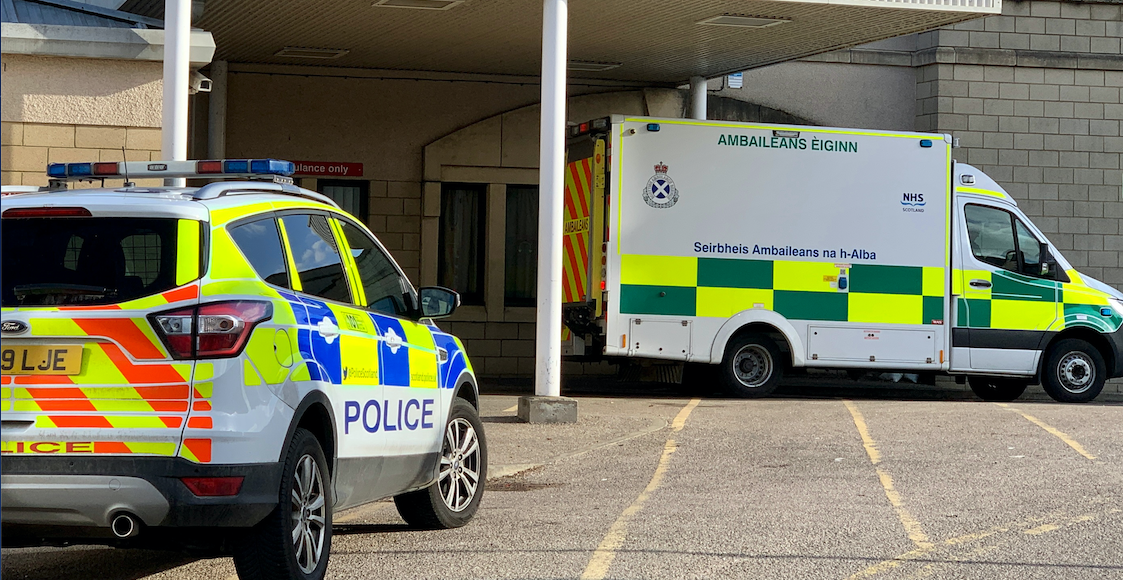‘Utilising multidisciplinary prof-to-prof conversation along with shared decision-making, resulted in the police being reassured about their duty of care, it provided more efficient use of NHS resources, and most importantly, we absolutely got the right care for our patient.’
Professional-to-Professional clinical decisions via Consultant Connect has been available to clinicians in Tayside Health Board in Scotland since 2018. The service rapidly connects healthcare professionals with NHS specialists for speedy and thorough advice for their patients. We spoke with Dr Ron Cook, Consultant Emergency Physician and Clinical Care Group Director for Unscheduled Medicine at Ninewells Hospital, who provides prof-to-prof advice via Consultant Connect.
Prior to the service being rolled out, what were the reservations you or your team had?
‘We didn’t have many reservations. NHS Tayside had been operating an emergency department prof-to-prof line for some time. Using Consultant Connect to support this offered the additional benefits of available data regarding call volumes and sources, and the reassurance of call recording for governance and incident review reasons.’
How have you found using Consultant Connect?
‘The call handling is seamless, and the dashboard and call logs are intuitive and easy to navigate. The ability to record the content of calls and access data has been a vital addition to our prof-to-prof service. Call records enable immediate ‘listen back’ which provides crucial clinical governance in reviewing decision-making and also provides a valuable educational opportunity in training staff in remote clinical decision support. Logging call volumes enables accurate resource management and contributes to job planning.’
Has your team’s workload been impacted by reviewing these cases?
‘NHS Tayside has always recognised the value of the prof-to-prof service in avoiding unnecessary presentations to ED. This long-held belief is supported by a review of call outcome data which reveals that in 30% of calls made by the ambulance service, the patient receives self-care advice or is directed to an alternative care setting than ED.’
What are the main benefits for your patients?
‘Timely availability of remote senior decision-maker guidance to enable presentation in the most appropriate care setting for that patient’s requirements, the first time.’
We also spoke with Jonathon Will, Clinical Effectiveness Lead and Specialist Paramedic for the Scottish Ambulance Service, to find out how utilising Consultant Connect to speak with specialists like Dr Cook helps him and his patients.
Patient Example
‘One example of prof-to-prof conversations working incredibly well was regarding a 74-year-old gentleman I attended. He had been reported to the police as a “wandering dementia patient”, and when they found him, it was clear he was somewhat unstable on his feet. In fact, he already had some minor injuries consistent with a fall.
‘Despite the patient’s confusion, the police managed to find out where he lived and got him home. At home, he was in a place of safety, but the police were concerned about the likelihood of repeat wandering, and possible subsequent fall. From a duty of care, they felt they needed the support of the Scottish Ambulance Service.
‘We attended and discovered that the police had contacted the patient’s brother, who was on-scene. Unfortunately, the brother was also displaying signs of cognitive decline – it was a really complex situation. The brother shared that the patient had a urinary tract infection and a recent hospital admission. The patient didn’t want to go back into hospital but also recognised that he wasn’t able to look after himself.
‘We called the prof-to-prof line via Consultant Connect, and a senior clinician informed us that the patient had been in hospital for two days for acute confusion and a UTI. There were also notes to the effect that the confusion was suspected to be more chronic in nature.
‘On the advice of the consultant, we then contacted the patient’s GP for a further prof-to-prof conversation. It transpired that the patient was booked for a five-day residential dementia assessment the following week. Given the history and our observations, the GP completed a remote consultation and prescribed further antibiotics. A prescription was sent to the local pharmacy, and we arranged for this to be collected by the patient’s own care company. The GP also provided details of the assessment centre and the patient’s social worker.
‘A conversation with the assessment centre highlighted that they could not accept the patient early, but after speaking with the social worker, we arranged emergency respite in a nearby care home to bridge the gap until his assessment.
‘Although we were on scene for a long time, our overall service time was not increased because we avoided a long convey and handover at the hospital. The patient had been quite anxious about the prospect of returning to hospital, and so he was very grateful for this alternative plan.
‘We avoided an unnecessary ED attendance, a probable hospital admission, we reduced travel impact, and we collaborated with our Primary Care, hospital and health and social care colleagues to provide a patient-centred plan. Consultant Connect allowed us to be more efficient with NHS resources, and most importantly, we absolutely got the right care for our patient. It was a great outcome for everyone.’





